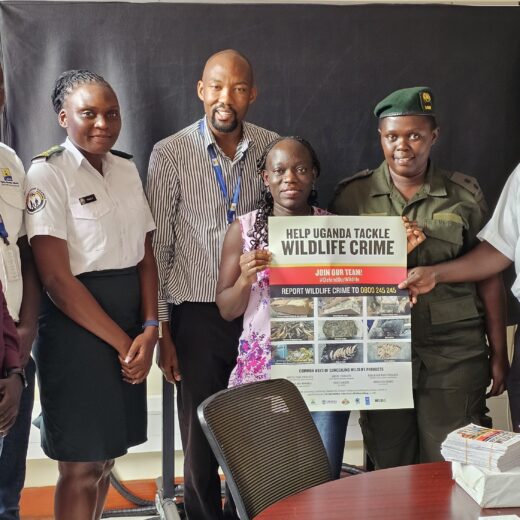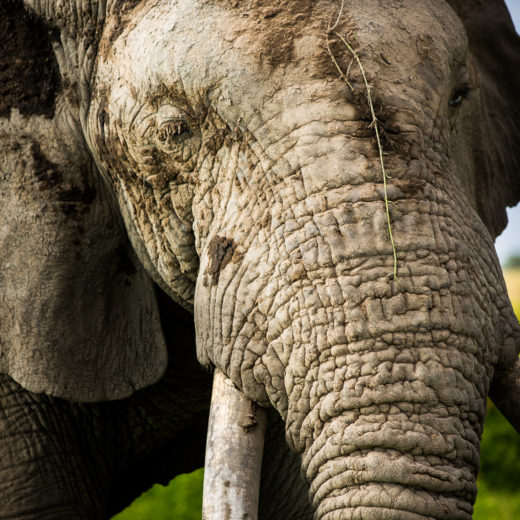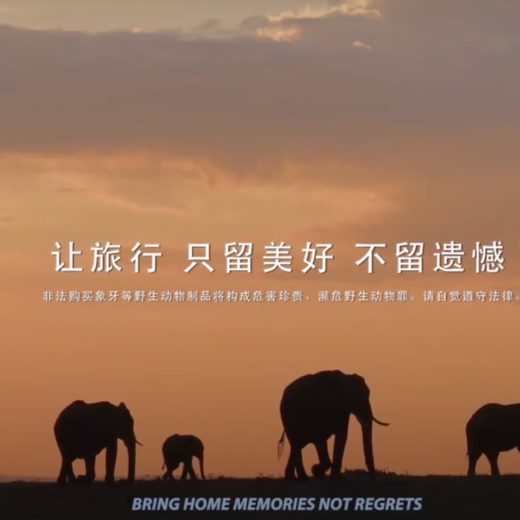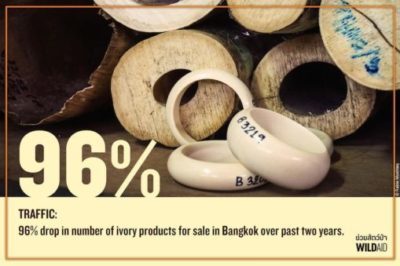
RABIA MUSHTAQ, WILDAID THAILAND
BANGKOK — Positive news for elephants continues this week with the release of a report detailing Bangkok’s shrinking ivory market. An 18-month survey of Thailand’s capital by TRAFFIC found a 96% drop in the number of ivory products available at retail markets from a high of 7,421 ivory items in 2014 to just 283 products earlier this year. The steep decline follows rigorous actions taken locally to comply with the National Ivory Action Plan.
Thailand’s Elephant Ivory Act regulates the country’s legal market in ivory from domesticated elephants. The government has also prohibited the trade and sale of ivory from African elephants by enacting an amendment to the country’s existing Wild Animal Reservation and Protection Act, making African elephants a protected species in Thailand.
TRAFFIC reported finding at least 2,550 ivory products for sale online through Facebook and Instagram, raising concerns of a shift from offline to online markets.
The results were released Friday in Johannesburg where the UN Convention on International Trade in Endangered Species (CITES) conference is underway.
Last week, WildAid also presented clear evidence that consumer demand reduction programs the organization pioneered in Asia are starting to have some effect on the regional ivory market, with price and consumption falling fast — a hopeful sign that long-term conservation efforts to fight the illegal wildlife trade are working. The latest wholesale ivory prices in Hong Kong SAR and mainland China researched by WildAid are 57% to 78% less than the 2014 high of $2,100 per kilogram.
WildAid CEO Peter Knights said, “Through public surveys we’ve known that awareness of the poaching crisis has increased by 50% in the last few years in Asia, and now we’re seeing that reflected in reduced demand and price drops. This is not in itself the solution, but ultimately it makes law enforcement easier on the ground with much less incentive for poaching and corruption. People who saw ivory as an investment are deservedly getting burned as mass awareness campaigns supported by government and private media are clearly having an impact. There is light at the end of the tunnel.”
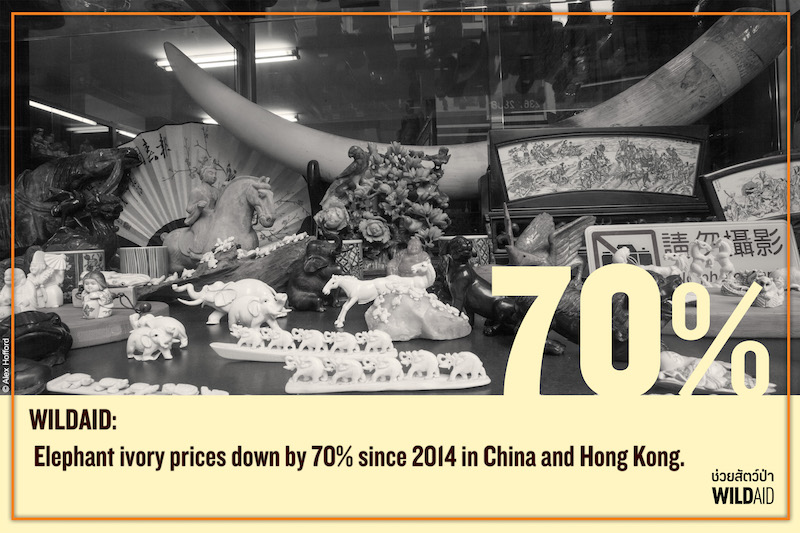

Earlier this year, WildAid launched two TV-messages in Thailand starring renowned international martial arts actor Tony Jaa and National football team coach Kiatisuk “Zico” Senamuang urging Thais to go “Ivory Free” and help put an end to the relentless slaughter of African elephants for their tusks. The messages were broadcast and shared nationwide with the support of television channels, prominent social media pages, VGI Global media who also extended pro-bono media space to allow the campaign messages to reach commuters at BTS Skytrain stations in Bangkok.
“We need to continue to raise awareness among the Thai public that the local market is supporting the killing of elephants in Africa, and we urgently need to reduce consumption of ivory products,” said John Baker, Managing Director of WildAid.
Tony Jaa: Ivory Free Thailand from WildAid on Vimeo.
Stay in touch and get the latest WildAid updates.
SIGN UP

